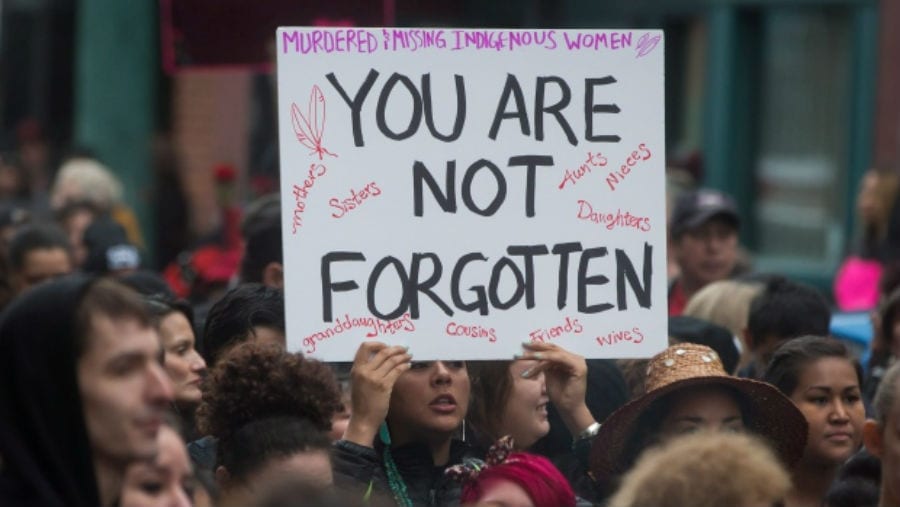KJIPUKTUK (Halifax) – Over the years applications for the Loretta Saunders Community Scholarship have dwindled. It’s not clear if this is because Indigenous women in Atlantic Canada are unaware of it, or if efforts to promote the scholarship could be improved.
While the number of applicants has decreased, the difficulty surrounding the selection of successful applicants doesn’t lessen. This year was no exception. Each woman who did apply deserves all of the support they need to succeed.
Hopefully we can regain momentum so we can serve the strong, determined Indigenous women with whom Loretta shared many values and goals. This year, Tammy Mudge and Marissa Prosper received $1,500 each.
We talked with one of the awardees, Tammy Mudge, about what receiving the scholarship means to her.
How do you feel as a recipient of the Loretta Saunders Community Scholarship Fund?
I feel honoured to have received this scholarship in Loretta Saunders’ name. It was such an unfathomable tragedy, with the loss of a strong Indigenous woman who was passionate about making real change and surfacing truth. This scholarship is a way to celebrate her work and dedication, in that it supports other Indigenous woman who share many of the same dreams and aspirations…allowing for real change.
How did you hear about the scholarship fund?
I heard about this scholarship through social media. There was a link on my Facebook newsfeed and I thought it would be applicable, as much of the work I do revolves around community, and I had heard of the work Loretta had done for Indigenous women and community. So I decided to follow the link and read more about the fund set up in her memory.
What are some of the obstacles that you face as an Indigenous woman pursuing higher education?
Well, I know that educational institutions I have attended in the past were quite unfamiliar with the Mi’kmaq and their history. This, of course, just contributed to a greater lack of understanding and acceptance. But, today, I find, at least in Nova Scotia, many educational institutions are trying to reach out to their neighbouring First Nation communities and recognizing the significant history of the Mi’kmaq in Mi’kma’ki. They seem to be more open to learning about their culture and traditions, and in some cases, even participating in them.
As an Indigenous mother, being able to bring my children to these institutions and feeling welcomed is important. In Mi’kmaw culture, as in many Indigenous cultures, it is common for young children to attend all events and gatherings. And although they are encouraged not to interrupt adult conversations, they should still feel welcomed. I think that it is important to accommodate this, and not just for Indigenous student parents of course, but all student parents. Perhaps study rooms designated for family use or a family rest area. All this, of course, while respecting the needs and privacy of all students on campus.
What message do you have to send to future applicants and to young Indigenous women who are considering post-secondary education?
Everyone’s journey is different, that’s for sure, so stay in tune with who you are and find your calling in the world with an open heart and open mind. I remember when the thought of finishing a degree would be impossible, but once I found what I truly loved, what my calling was, it was go time…and little by little, step by step, it is coming to fruition. You can’t go wrong with furthering your education. You become more worldly and better prepared to contribute to society, and the world as a whole! Celebrate who you are and what you have to offer and give yourself more credit than you do now! Go time!
What’s next for you? What are some of your goals?
Well, initially, my end goal was completing my bachelor’s degree and finding full-time work in a community in Mi’kma’ki, in some area of community development, perhaps even politics. But, over the course of this past year at Acadia, and with insight and encouragement from some amazing faculty in the Community Development department, I have decided to continue my education and pursue a master’s degree.
The Loretta Saunders Community Scholarship Fund supports indigenous women (First Nations, Inuit, Métis) to complete their chosen field of study through the provision of annual financial bursaries. It was created in memory of Loretta Saunders, who was an Inuk woman attending Saint Mary’s University in Halifax months away from completing an honours degree in Criminology when she was brutally murdered in February 2014.
If you know an Indigenous woman in university or college, please encourage them to apply for the scholarship here. If you’d like to donate as an individual or organization and receive a tax deductible receipt, click here.
See also: Honouring Loretta’s passion: 2017 Loretta Saunders community scholarship awards
If you can, please support the Nova Scotia Advocate so that it can continue to cover issues such as poverty, racism, exclusion, workers’ rights and the environment in Nova Scotia. A paywall is not an option, since it would exclude many readers who don’t have any disposable income at all. We rely entirely on one-time donations and a tiny but mighty group of dedicated monthly sustainers.
Subscribe to the Nova Scotia Advocate weekly digest and never miss an article again.




